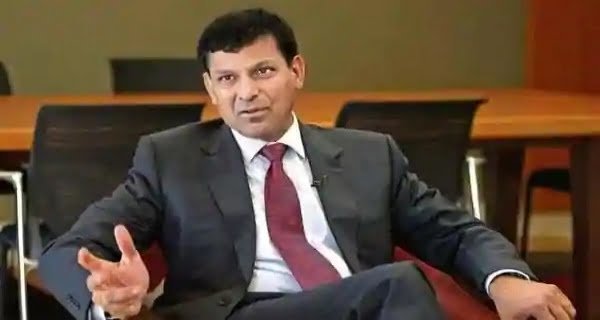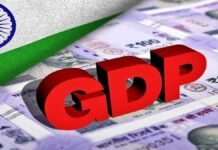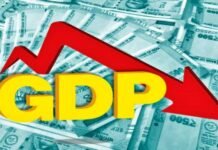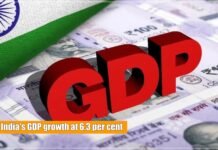
New Delhi: Former Reserve Bank of India Governor Raghuram Rajan has described a 23.9 percent decline in the gross domestic product (GDP) in the first quarter (April-June) of the current financial year as worrisome. He has said that the bureaucracy will now have to come out of complacency and take some meaningful action. He said that during the current crisis a more thoughtful and active government is needed. Rajan said, “Unfortunately the activities which had grown very fast, in the beginning, have now cooled down again.”

Rajan wrote in a post on his LinkedIn page, “Such a huge decline in economic growth is a warning to all of us.” GDP in India declined by 23.9 percent. (This decline may be further exacerbated after the unorganized sector figures). On the other hand, the countries most affected by the Covid-19 have fallen by 12.4 percent in Italy and 9.5 percent in America. ” He said that a good thing due to such a poor GDP figure could be that the official system would now come out of a state of complacency and focus on some meaningful activities.
Rajan is a professor at the University of Chicago. He said that cases of Covid-19 in India are still increasing. Thus, discretionary spending and related employment on services such as restaurants will remain low until the virus is controlled. Rajan said that the government is probably avoiding doing more at this time so that resources can be saved for future possible incentives. He expressed the opinion that this is a suicidal tactic.
Underlining the importance of government support or relief in the current scenario, Rajan said, “Without relief measures, the growth potential of the economy will be seriously hurt.” He said that Brazil has spent a considerable amount on relief measures. This is the reason why the decline in the medium term growth is likely to be much less than India. ” Giving an example, Rajan said that if we take the economy as a patient, then the patient needs the most relief while he is in bed and fighting the disease.
He said, “Without relief or help, families will not be able to have food, take their children out of school and send them to work or beg.” Pledge your gold Will not pay EMI and rent. As long as the disease is controlled, the patient will become the body itself. ”
The former governor of the Reserve Bank said that now consider economic stimulus as a ‘tonic’. “When the disease ends, the patient will be able to get out of his bed fast. But if the patient’s condition will worsen too much, then the incentive will not benefit him. Rajan said the recent improvements in areas such as automobiles are not evidence of V-shaped reforms (the faster the decline, the faster the recovery). He said, “This is a pressing demand. In a damaged, partially functioning economy, when we reach the level of real demand, it will end. ”
Rajan said that there was a slowdown in the economy even before the epidemic and there was pressure on the financial condition of the government. In such a situation, the authorities feel that they cannot afford both relief and incentives. He said, “This thinking is pessimistic. The government will have to increase its resources in every possible way and it should spend as wisely as possible. ” He said that the government will have to take every step that can take the economy forward without additional expenditure.
The former RBI governor said that India needs strong growth not only to fulfill the aspirations of the country’s youth but also to keep the neighbors quiet with whom tensions are rising. He said that in some states ‘half-baked’ reforms like the postponement of labor protection law will neither encourage the enthusiasm of industries nor workers. Rather it will spoil the name of reform.
Rajan suggested that reforms could be made part of the stimulus. If their implementation is not immediate, its deadline can be fixed. This will also strengthen the investor perception. Rajan said that the world will recover from the epidemic before India. In such a situation, India can also move forward through exports.






















































